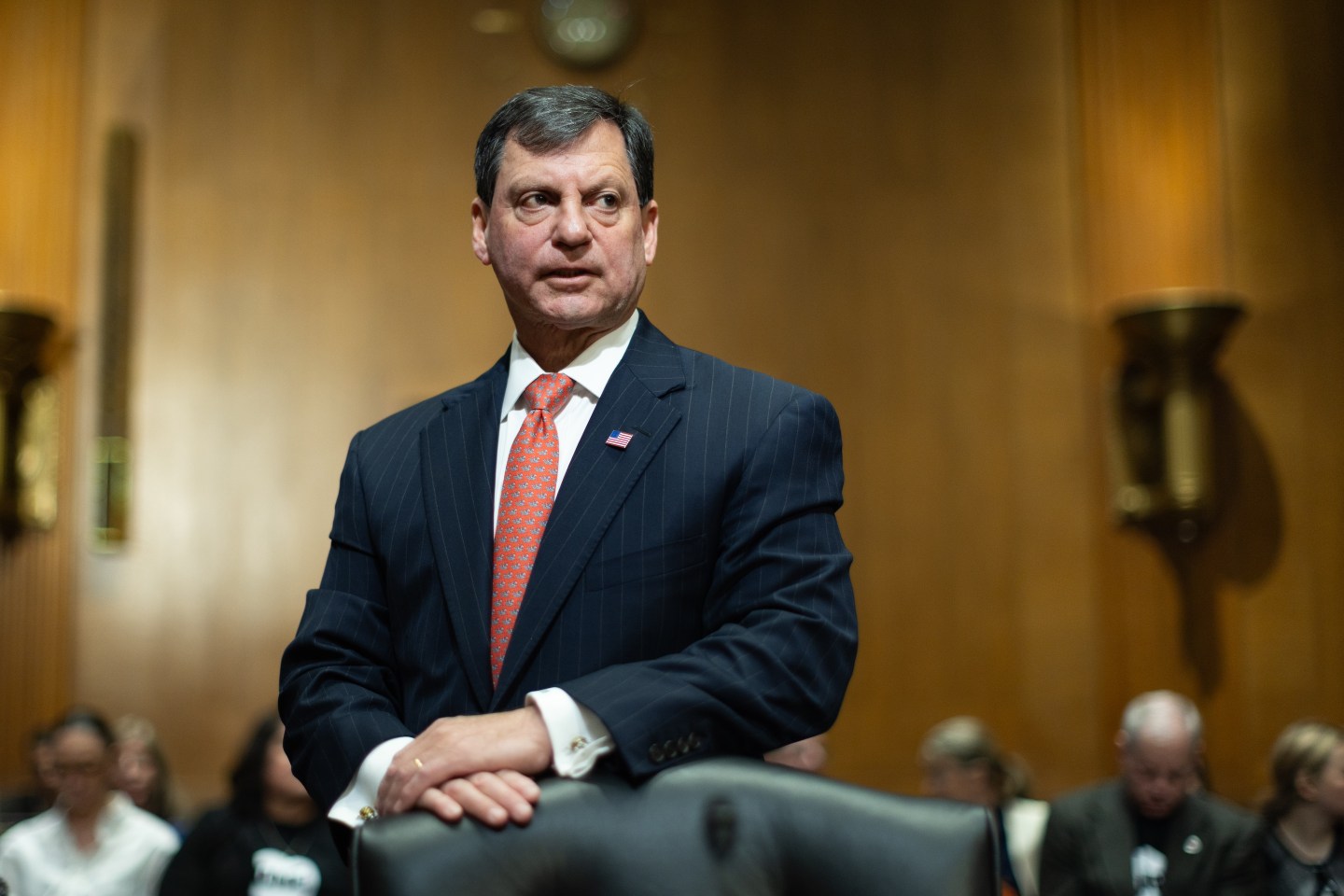Good morning. There’s a little more than six weeks to go until our Fortune Brainstorm AI gathering in London from May 6 to 7.
If you haven’t popped by the speakers page lately, please do. You’ll find Decart cofounder and CEO Dean Leitersdorf, Cohere cofounder and CEO Aidan Gomez, Shaun Maguire of Sequoia Capital, Peter Hill of Synthesia, at least two actual Lords, and more chief AI officers than you can shake a prompt at.
It’s gonna rip—and we still haven’t shared everything, not even close. Think you’ll be in town? Please join us.
Today’s news below. —Andrew Nusca
Want to send thoughts or suggestions to Data Sheet? Drop a line here.
Europe regulators order Apple to open iOS to third parties

Antitrust regulators for the European Union on Wednesday ordered Apple to open its closed ecosystem to competitors.
The measures cover two areas of interest: the interoperability of the devices themselves and the process by which developers can achieve it.
Apple must give rival makers of phones, headphones, and headsets access to its technology for better connectivity. It must also grant external developers better access to technical documentation and respond in a timely fashion to their communications.
“Connected devices of all brands will work better on iPhones,” regulators said. Meanwhile, “developers will benefit from a fast and fair handling of their interoperability requests.”
Non-compliance could lead to an investigation and fines—as much as 10% of its global annual sales.
In a statement to the press, Apple said the move would harm its products, slow its innovation, and give away its features to competing corporations who aren’t held to the same standard.
“Today's decisions wrap us in red tape,” it said. —AN
SoftBank will acquire Ampere Computing for $6.5 billion
The SoftBank AI train just keeps on chuggin’.
Masayoshi Son’s Japanese conglomerate said late Wednesday that it will acquire the U.S. semiconductor company Ampere Computing for $6.5 billion in cash.
The acquired company will operate as a wholly owned SoftBank subsidiary.
If the name sounds familiar, that’s because Ampere is the Silicon Valley chip design outfit led by Intel veteran Renée James, who founded the company in 2018.
James, an Intel veteran going back to 1988, had served as its president from 2013 to 2015. She left the company “to pursue an external CEO role” after Brian Krzanich was appointed CEO.
Ampere is backed by the Carlyle Group and Oracle—the latter of which is very involved in all things Masa Son. Son is the chairman and an equity funder of the Stargate Project, which is committed to investing $500 billion in U.S. AI infrastructure in the next four years.
Oracle is another equity funder of Stargate, and its chairman, Larry Ellison, appeared with Son at the initial Stargate announcement.
“The future of Artificial Super Intelligence requires breakthrough computing power,” Son said in a statement. “Ampere’s expertise in semiconductors and high-performance computing will help accelerate this vision.” —AN
U.S. state governors make fresh overtures to tech execs
It’s certainly not news that Big Tech commands extraordinary influence in today’s America, but still, it’s worth keeping track—and this week has presented two eyebrow-raising examples that both involve Democratic politicians.
Exhibit 1: According to Politico, California governor/podcaster Gavin Newsom has taken to sending burner phones to CEOs whose businesses are headquartered in his state. As in, actual cheap, prepaid phones with his number saved in the contacts. Like in The Wire!
“If you ever need anything, I’m a phone call away,” he wrote on one note to an unnamed tech CEO. It was apparently Newsom’s idea. Around 100 of the things have gone out so far.
Exhibit 2: At the end of January, the Wall Street Journal reported that Meta was considering following Tesla in incorporating outside Delaware, which very much needs big corporations to stay put.
The next day, according to a new CNBC report, Gov. Matt Meyer scrambled to meet with Meta’s lawyers. And two weeks later, Delaware’s lawmakers were presented a bill that will (if passed) be music to the ears of controlling shareholders such as Mark Zuckerberg and Elon Musk, by reducing transparency to shareholders and easing the way for conflicted transactions.
Meyer’s spokeswoman insisted that he was not “doing the bidding of any billionaire.” —David Meyer
More data
—Google unveils its Pixel 9a. Few surprises for the $499-and-up smartphone after so many leaks. Ships next month.
—U.S. SEC will drop its Ripple appeal. The five-year legal battle over XRP is nearly over, CEO Brad Garlinghouse says.
—OpenAI launches o1-pro. More compute, better reasoning.
—Kraken may acquire NinjaTrader. The crypto exchange’s $1.5 billion acquisition of the retail futures trading platform is reportedly imminent.
—United Videogame Workers form. The “first-ever direct-join industry-wide union in North America” for a rapidly consolidating category.
—AI can’t claim sole copyright for artwork it generates, according to a U.S. judicial panel.
—X raises almost $1 billion in new equity. Elon Musk's social network is now reportedly valued at about $44 billion.














